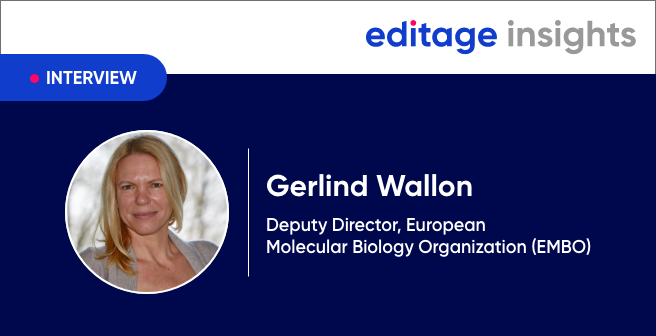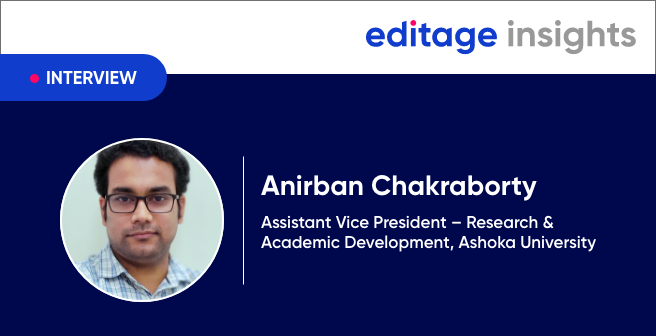Axios Review: Solving the submit-reject-resubmit problem for authors

Journal selection and submission are major areas of frustration for authors, and most of them go through the process of submitting their paper to a journal, facing rejection, and re-inventing the wheel by re-submitting their paper to a new journal. Each process is time- and effort-intensive, not to mention the waiting periods in between. Axios Review, an independent review organization, solves the submit-reject-resubmit problem for authors by rigorously reviewing authors’ manuscripts and judging how they fit with journals of the authors’ choice. Axios then approaches the suitable journals to see whether they want the paper. An expert editorial board adds qualitative value to each manuscript review and the result is shorter time to journal decision and publication, sometimes as little as 6 weeks. Tim Vines, Managing Editor of Axios Review, talks about how Axios eliminates rejections on the basis of novelty or scope. A passionate advocate of data sharing, Tim also says that the concept of data sharing will advance only when authors themselves realize that a paper with carefully curated shared data is scientifically better than one without.
Following a PhD in Evolutionary Biology from the University of Edinburgh, Tim took up postdoctoral positions at the University of British Columbia. He then entered scholarly publishing and served as Managing Editor for two of Wiley’s publications, Molecular Ecology and Molecular Ecology Resources. Tim also consults for scientific societies, journals, and publishers. In addition to publishing papers on science publishing, data archiving and reproducible science, Tim recently received the inaugural Award for Achievement or Innovation by the International Society of Managing and Technical Editors.
Could you give us a brief overview of Axios? How do you, as stated on your website, “eliminate rejections on the basis of novelty or scope”?
We’re essentially an intermediary between authors and journals, helping authors find a journal that’s interested in their paper. Our process is as follows:
1) Authors send us their paper and suggest four target journals
2) Our academic editor picks reviewers
3) The reviewers comment on the paper and whether it fits in each of the target journals
4) Our editor decides which journals should be approached
5) We ask the appropriate target journals whether they want the paper
6) Authors revise the paper and send it to the interested journal
It works very well: 85% of the papers that are reviewed by Axios and sent to an interested journal get accepted, and half of those don’t get sent out for review again. This makes sense because our referral contains a lot of useful information (the reviews, the reviewers’ names, a pdf of the manuscript), and journals can easily decide whether the paper is novel enough and within their scope. As a result, the journal will only ask for the paper to be submitted if they think it has a good chance of getting accepted. We average 7 months between submission to Axios and publication in the journal, and this falls to 4 months if the time the authors spend revising the paper is excluded.
We’re very proud of these statistics because they show that our process really does work, and I think that comes from the trust journals place in our review process. Authors using Axios really can get their work out quickly in the best possible journal.
So who is Axios Review most useful for?
Axios is most useful for people who are having a hard time finding the right journal to publish their work, either for a particular paper or more generally. This is especially true for authors with a strong paper that deserves publication in a good journal but they are unsure where it fits. In fact, researchers find themselves in this situation at all stages of their career. Our review process provides detailed expert feedback on the manuscript, and then we find a journal that wants to have the paper submitted.
On what basis do you recommend journals to authors? How does that process work?
Authors are responsible for providing us with a ranked list of four potential journals when they send us a paper. Our editor might request a change to this target journal list before we begin the referral process if they feel the paper has no chance at any of the chosen journals. We always discuss changes to the journal list with the authors.
Who are your peer reviewers and editors? How do you select them? Do authors know the identity of the peer reviewers?
Our editors are acknowledged experts in their particular fields, and most of them have extensive experience as journal editors as well. These editors select the reviewers for each manuscript on the basis of the reviewer’s area of study, and their ability to provide an objective and thorough assessment of the paper. By default, our review process is “single blind,” so the authors do not know the identities of the reviewers. Authors can also choose to have their paper reviewed “double blind,” where the reviewers are also unable to see the identities of the authors. Either way, the editor knows the names of the authors and the reviewers.
A common topic of discussion in scholarly publishing circles is the need to incentivize peer review to motivate reviewers. What incentives do your peer reviewers get for offering their services to Axios Review?
We’ve found that people are often enthusiastic to review for Axios because they know we’ll make efficient use of their comments: a review for a paper that gets rejected from a journal is filed away and forgotten, but a review for Axios can be re-used until the paper finds a suitable journal. A lot of academics are frustrated with the submit-reject-resubmit problem and like our approach to solving it. We’ve also found that having a respected editor handling the paper increases people’s willingness to contribute a review.
Aside from that, we offer our reviewers a $50 discount from a future submission to Axios, and our editors receive an equivalent reduction. Some of our reviewers have listed their Axios reviews on Publons. We’ve found that our reviewer agreement rate is comparable to that at a regular journal.
Most research grants include a dedicated publication budget. Can authors pay for Axios Review using their grant money?
Yes! Most Axios authors pay our fee ($250) from their grant money. I should add that this fee is only due once we send our reviewer reports to the authors.
Some journals you have partnered with, e.g., the BioMed Central journals, deduct the Axios Review fees from their Open Access charges. Do you plan to follow the same model for your partnerships with other journals?
We’re really happy that the BMC journals offer this deduction to authors, and it’s certainly possible that other publishers will offer a similar deduction in future.
Currently you offer pre-publication peer reviews for evolutionary biology and ecology. Do you plan to increase the scope of subjects your service covers? What else can authors expect from Axios Review in the near future?
Absolutely! We’re actively recruiting editorial boards and talking to journals in a number of fields at the moment. We’ll put out a more formal announcement when we’re ready to start handling papers in these new areas.
Would you say that the Axios peer review process makes the publication process more efficient? How has the experience been so far? Have you faced any specific challenges?
I’m a natural pessimist, which means I’ve been consistently amazed at how well the Axios process works. For example, the acceptance rate for our referred papers is 85%, and the proportion that was accepted without being reviewed again by the journal is over 50%. As I mentioned earlier, in terms of timing, we average 7 months between submission to Axios and publication in the journal, and this falls to 4 months if the time the authors spend revising the paper is excluded.
Our biggest achievement so far is that our authors have been able to get their paper into the best possible journal in a matter of months. We’ve allowed authors to test where their paper fits in the journal ecosystem without going through the pain of multiple rounds of submission, rejection, and revision before resubmission. Another benefit of this streamlining is that we’ve reduced the workload for editors and reviewers.
I think part of our success stems from understanding the workflows of so many different journals (our target journal list is here). It’s sometimes been challenging to work out how best to integrate what Axios does with each individual journal, but this is something that we keep working on. The journals have certainly been very patient and helpful so far.
An independent peer review model, like the one Axios Review follows, is one of the emerging trends in scholarly publishing. What value do such models add to manuscript quality and the publishing workflow? And how far do you think the academic community has come in its acceptance of newer models of peer review?
I think we have to be careful when it comes to making changes to the peer review system. For better or worse, academic peer review is one of the two ways by which modern society tries to establish “truth” (the other is the legal system), and we therefore have to be sure that whatever changes we make preserve its core functions. For me, those functions are “improvement,” where reviewers and editors help the authors to identify and deal with problems in their papers, and “filtration,” where papers are channeled into journals that tell readers about their subject matter and perceived importance.
One major problem is that authors often face strong pressure to publish their work in the best possible journal to advance their careers. The focus on aiming high means that the “filtration” function is clogged by many over-ambitious submissions. This, of course, is the problem that independent peer review is trying to fix: we help authors find a journal where their paper fits in a single step while allowing for both “improvement” and “filtration.”
We’ve found support for what Axios is doing throughout the community. I think this is because almost everyone recognizes the problem of “journal shopping” and appreciates that we’re solving it without tearing down the current system. We very much hope that the community eventually sees independent peer review as a standard route to journal publication.
I’d like to touch upon a topic you are passionate about – data archiving. In one of your publications, you mention that mandating data archiving will greatly improve access to research data and that “research data cannot be reliably preserved by individual researchers”. Could you elaborate? What role does data archiving play in today’s scientific publication scenario? How open are different segments of the publishing community to the idea of data archiving?
There’s been a lot of progress on data sharing in recent years, which is great. There are circumstances where it can be problematic, for example ongoing long-term ecological studies or studies where patients could be identified from their data. We need to put plenty of thought into how these problems can be addressed.
Generally, though, it makes no sense to me that someone can publish a scientific paper without providing the core evidence (the data) in support of their claims. For many years, the scientific community believed that the data could always be requested from the authors after the paper is published. Our study was one of several showing that this belief is false, particularly for older articles: far too many authors are unwilling or unable to share the data underlying their papers. Requiring that the data be shared alongside the published article is the neatest solution, as (a) it’s relatively straightforward to decide which data should be made available, and (b) journals can withhold publication until all the data are public.
Of course, real progress will happen when data sharing is part of authors’ expectations for their own papers, where they recognize a paper with carefully curated shared data is scientifically better than one without. I think we’ve made a lot of progress on promoting this idea in the last few years.
Thank you, Tim!
Full disclosure: Editage had collaborated with Axios Review to provide high-quality editing and translation services from Editage and peer review services from Axios Review for manuscripts in the fields of evolutionary and ecological research. However, this interview was conducted independently by Editage Insights and poses no commercial conflict of interest.
On February 23, Axios review announced on their Twitter page that the company plans to shut down and they will stop accepting further submissions from March 1. To know more about this, follow our update on this development.



